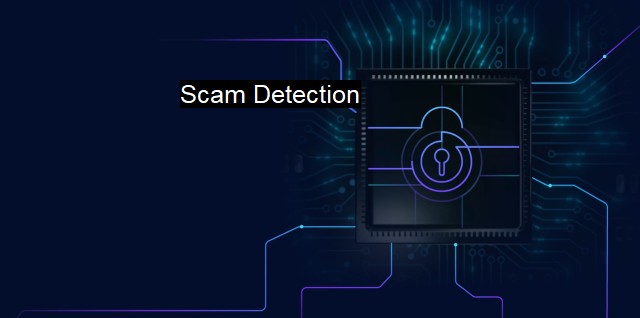What is Scam Detection?
Exploring the Crucial Process of Scam Detection: Techniques and Components Needed to Identify and Avoid Online Frauds, Scams, and Deceptive Acts.
Scam detection is a core component of the cybersecurity strategy of individuals, organizations, and also antivirus programs. Broadly, it encompasses identifying and nullifying attempts to fraudulently extract sensitive information or money from unsuspecting users online. Scams can take numerous forms, including phishing emails, fake websites, phone calls pretending to be legitimate organizations, false social media profiles, and fraudulent online ads.Through identifying trends and patterns of behavior consistent with fraud attempts, scam detection provides a much-needed bulwark against these pervasive threats. Scammers are continually innovating, so state-of-the-art scam detection must necessarily incorporate a proactive and forward-thinking posture, part of which is staying abreast of the latest tactics employed by fraudsters.
Antivirus software typically has defined scam detection capabilities built into its functionalities. Using regularly updated databases that contain the signatures and behavior patterns of known scams, an antivirus software scans the user's system and incoming/outgoing interactions for indications of these threats. Upon identification, the threat can be isolated and eliminated before it can cause harm. Many antivirus programs also automatically update their databases to assure that even the most recent developments in the online scam landscape are captured.
Contemporary scam detection technologies stretch beyond known threats signature identification and include heuristic-based detection procedures. This intelligence allows antivirus software to forecast and block scam attempts that have previously not been encountered by evaluating actions and patterns typically associated with fraudulent activities.
Artificial Intelligence (AI) and Machine Learning (ML) have also been increasingly applied to aid in scam detection. AI-powered scam detection systems can sift through colossal amounts of data in real-time, learning, analyzing, and predicting danger based on learned patterns. Machine Learning, a subset of AI, can "learn" from previous scam tactics and get "smarter" - giving it the valuable capacity to identify and counteract new scam threats as they emerge.
It's worth noting that effective scam detection isn't just a matter of technology; it also encompasses user education. Even the most sophisticated antivirus systems are reminded as a feedback root for ill-informed user behavior, such as clicking on suspicious links in phishing emails or volunteering sensitive data to unverified individuals or websites. Therefore, comprehensive scam protection also involves raising public awareness about the prevalent scam practices and how to protect themselves proactively.
Scam detection is complicated indeed by the fact that it's an active battle between cybersecurity experts and experienced fraudsters. The moment scam-detection strategies are put into place, scammers work relentlessly to undermine them. Consistent innovation and vigilance are therefore critical to staying one step ahead of the threat landscape.
Scam detection is an intricate dance of pattern recognition, data analysis, heuristic warnings, user prudence, and continuous learning systems. It plays a crucial role where online scams are not only frequent but also becoming more sophisticated. Effective scam detection relies heavily on the synergistic application of technology (like antivirus software) and awareness concerning robust cybersecurity habits. It forms the frontline in the ongoing cyber-warfare between scam practitioners and those tasked with thwarting them. Robust and advanced scam detection systems are important to protect and safeguard individuals and corporations from the myriad of potential threats posed by online scams.
For the foreseeable future, scam detection remains an important subject and core area of focus within the broad context of cybersecurity. As long as the internet continues to be a common global end-user communication platform, the risk of scams will persist - making the ever-evolving field of scam detection an undeniable necessity in the digital world.

Scam Detection FAQs
What is scam detection and why is it important in cybersecurity?
Scam detection refers to the process of identifying fraudulent activities on the internet, such as phishing scams or malware attacks. It's important in cybersecurity because these scams can compromise sensitive data and lead to financial loss or identity theft.How can antivirus software help with scam detection?
Antivirus software can help with scam detection by scanning emails, websites, and downloads for any suspicious activity. It can also alert users if they are about to visit a potentially dangerous website or click on a malicious link.What are some common scams to watch out for online?
Some common scams to watch out for online include phishing scams, where scammers try to trick users into providing personal and sensitive information, and tech support scams, where scammers pretend to be from a reputable company and try to gain remote access to a user's computer. Other scams include fake job offers, lottery scams, and investment scams.How can I protect myself from scams online?
To protect yourself from scams online, it's important to be cautious when clicking on links or downloading attachments from unknown sources. You should also avoid providing personal information unless it's absolutely necessary and you're certain of the legitimacy of the website or company. Using antivirus software, keeping your computer and software up to date, and regularly changing your passwords can also help enhance your online security.| | A | | | B | | | C | | | D | | | E | | | F | | | G | | | H | | | I | | | J | | | K | | | L | | | M | |
| | N | | | O | | | P | | | Q | | | R | | | S | | | T | | | U | | | V | | | W | | | X | | | Y | | | Z | |
| | 1 | | | 2 | | | 3 | | | 4 | | | 7 | | | 8 | | |||||||